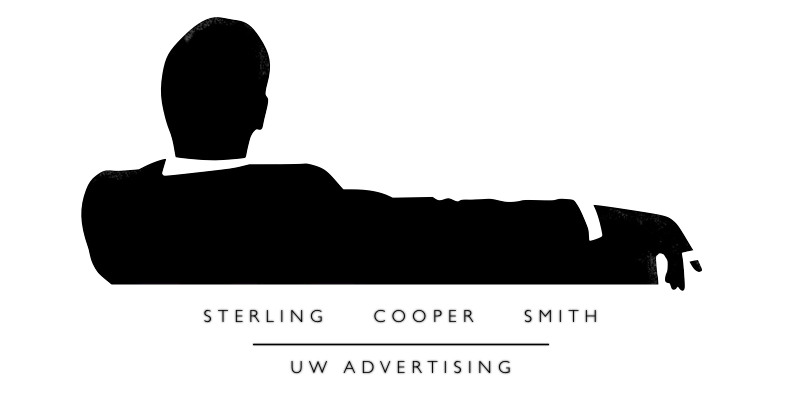11.30.2010
Put That In Your Pipe and Smoke It
John F. Kennedy’s presidential campaign in the summer of 1960 used Jackie Kennedy Onassis, his wife, as a key figure. Beautiful and well-spoken, she was known to the nation already as a fashion icon. In an effort to reach out to the Spanish-speaking voters, she filmed a commercial for Kennedy entirely in Spanish, as shown above. In it she says:
“Dear Friends, the wife of senator John Kennedy, candidate for the US Presidency, is talking to you. In these very dangerous times, when the World peace is threatened by Communism, it is necessary to have in the White House a leader able to guide our destinies with a firm hand. My husband has always cared for the interests of all the portion of our society who need the protection of the monetary government. For the future of our children and to reach a world where true peace shall exist Vote for the Democratic party on the 8th of November. Long live Kennedy!”
Since Sterling Cooper is running the advertising campaign for Nixon during this election, Harry Crane is charged with keeping tabs on the television ads for the opposing candidate. As soon as this reaches the Sterling Cooper boardroom, in Episode 9 of Season 1 (“Shoot”), they begin discussing damage control. Ken complains “I don’t understand it,” and Paul Kinsey’s retort is, aptly, “Because it’s in Spanish.” This quick boys’ club exchange passes quickly because morale is rather low, especially when Don points out that Nixon’s eight-point lead in the polls “isn’t much.”
Mad Men shows the election from the perspective of the Sterling Cooper advertising agency so as to make viewers think about just how influential television was in the election, for the first time ever. Today, we expect to see campaign advertisements on almost every commercial break in the last few weeks leading up to a presidential election. In 1960, advertising agencies were paving the way for the first ever televised presidential election, with the debate as the main event. Some will even argue that, had the debate not been televised, Nixon would not have come across so poorly in it. Had television not been a factor in the election at all, Nixon might have served his presidential term long before the Watergate scandal. Imagine that next time you see a political ad on television.
Links consulted: "Jackie Kennedy Speaks Spanish"
Subscribe to:
Post Comments (Atom)

I took a class in high school about public speaking and our main focus was on ethos, pathos, and logos. Ethos is the voice you are projecting, pathos is the emotion you want to convey, and logos is the logic of your argument. I always think about the pathos whenever I see ads since I try to think about which audience the ad is selling to. Clearly the Kennedy's are selling to hispanics.
ReplyDeleteThis reminds me of the Obama ads I saw leading up to the 2008 presidential election. A huge portion of the Obama ads were geared towards the younger voters with endorsements from popular celebrities like will.i.am from Outkast and Kal Penn from the television show "House" and the Harold and Kumar movies. I definitely saw multiple ads in Spanish for both McCain and Obama, although I saw more pro-Obama ads in Spanish. There was even a song called "Viva Obama (Viva!)" that was popular around the election time. I'm interested in seeing the new political ads and who they're selling to for the next election.
very interesting article! I never knew Jackie Kennedy spoke Spanish until she I saw this commercial.
ReplyDeleteI think you definitely touch on something really important here, which is the drastic shift in political campaigns after television was really used for the first time. With TV, candidates (and in this case their wives) had a unique opportunity to reach out to voters and make a more personal connection than a lit piece left on a voter's doorstep. In many ways this can be seen as analogous to Obama's campaign in that he was the first to take advantage of other means of communicating with voters - Youtube, Facebook, Twitter all graced 2008 campaign material.
ReplyDeleteThe ads highlighted throughout the first season really serve to contrast political ads today as well as shows the evolution of campaigning. While campaigning used to center around name recognition, today, it requires a much more strategic plan and marketing tools. Slur ads run rampant on the air, and candidates will go to any means possible to make a connection with a voter. To echo an earlier comment, I think it will be interesting to see the change in political advertisements to come.
I have always thought that the Nixon/Kennedy election of 1960 was a proverbial battle between an attractive young man, and a seemingly older politician. The consensus among the tv watching population seemed to be that Nixon lost the debate in 1960 because he chose not to wear stage makeup and wore a grey suit. Nixon was a prosaic Republican running against an attractive, eloquent, Irish-Catholic, and had even admitted to his own unattractiveness. Most people who have seen footage of the debate would probably argue that Nixon’s body language was tense and agitated compared to Kennedy’s calm, cool, and collected conduct. In my opinion, this supports the theory that the election of 1960 was decided in large measure on aesthetics.
ReplyDeleteThere is no election that rings more true to this premise than the 2008 presidential election. We all remember the adulation of Obama, his kids, and Michelle’s arms. This man came from a modest background, was well educated, and taught constitutional law. He has two beautiful daughters and a cute and cuddly puppy. People fell in love with the entire package, just as they did with Kennedy in 1960.